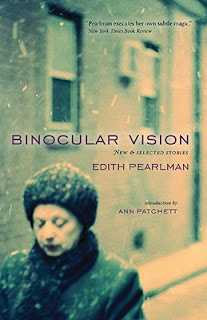Peter paused. He had been lecturing to Meg, taking advantage of her daughterly attention. In years spent among self-important high school teachers and garrulous old ladies, he had accustomed himself to the listener's role. Now he had found someone who listened as attentively as he did. If was as if she had inherited the talent from him – or, since that was impossible, had caught it. And this house of hers – so old, and so fresh – it too seemed to want to hear what he had to say. "Mrs. Jellyby's philanthropy isn't very Jewish, either," he went on. "You could make a case that her charity is in Maimonides' seventh degree – she doesn't know the names of the people she's relieving and they've certainly never heard of her. But Dickens meant her to be a figure of fun, and he keeps arguing with me. He says that Maimonides was talkinga bout charity closer to home, and that Mrs. Jellyby doesn't qualify at all...I do get a bit carried away, don't I?Meg was silent. Of all the silences he had ever experienced, Meg's was his favorite. It was not disappointed, like his mother's; not bored, like those of the women he had courted; not embarassed, like that of the search committee that had failed to award him the headmastership; not sleepy, like students in late-afternoon remedial classes; and not terrifying, like his mute aunt after her stroke. (pp. 26-27)
Edith Pearlman's fourth collection, Binocular Vision, which collects the majority of its 18 stories from her earlier three collections in addition to three early pieces and others never collected before, stands out from the other finalists for the 2011 National Book Award for fiction for several reasons. First, it is the only story collection on this particular shortlist and unlike the others, is comprised mostly of stories that had been published prior to the past year. While this makes it difficult to review Binocular Vision in a similar fashion to the other finalists, there is much praise that can be heaped on it.
Pearlman's stories are never quite the same in structure, voice, or theme, yet there is a perceived uniformity to them that transcends these typical categories of assessment. In this collection, she primarily, but not exclusively, talks about Jewish life, whether it be in Europe, Israel, or in the Americas after the second and third diasporas of the Jews during the late 19th century through the years immediately following the Holocaust and World War II. Yet her tales are much more universal than that distorting generalization. In stories such as "Settlers," Pearlman gives distinct voices to characters such as the Professor Peter Loy and Meg Wren. She mixes in references to high culture, literature, existential crises, and other assorted odds and ends to craft stories that never feel dull or mechanical.
The characterizations in particular are outstanding. Story after story, Pearlman manages to create different, fresh personalities and situations that leave the reader dwelling upon the events long after the end is reached and the next story begins. Although none of the tales are explicitly connected, there are on occasion stories that share sensibilities with one another, if not a commonality in plot or theme. This creates a flow that often is not evident in story collections, due to the diverse nature of the stories found in most collections, especially those who are cobbled together, as is Binocular Vision, from earlier collections and whose stories' creations span decades.
Yet it is very difficult to compare fairly even the best of collections against single, unified novels. I found myself wishing that there were a separate collection category where Pearlman could be compared to tales of similar length and publishing history. It certainly would be a favorite to win any such category due to the near-universal rate of quality stories compared to the merely adequate tales that often fill out most single-author collections. However, due to the fractured nature of story collections, it is hard to justify Binocular Vision being compared to the other finalists, each of whom wrote unified novel narratives. The richness of Pearlman's stories in this case actually works against her, since many, such as myself, likely would judge the mechanics and execution of short fiction differently than they would longer fictions. As it is, Binocular Vision is deserving of high praise and merit and I am pleased to see it nominated, but I cannot help but wonder if all might be served better if the fiction award were divided into novel and short fiction collection categories.











No comments:
Post a Comment